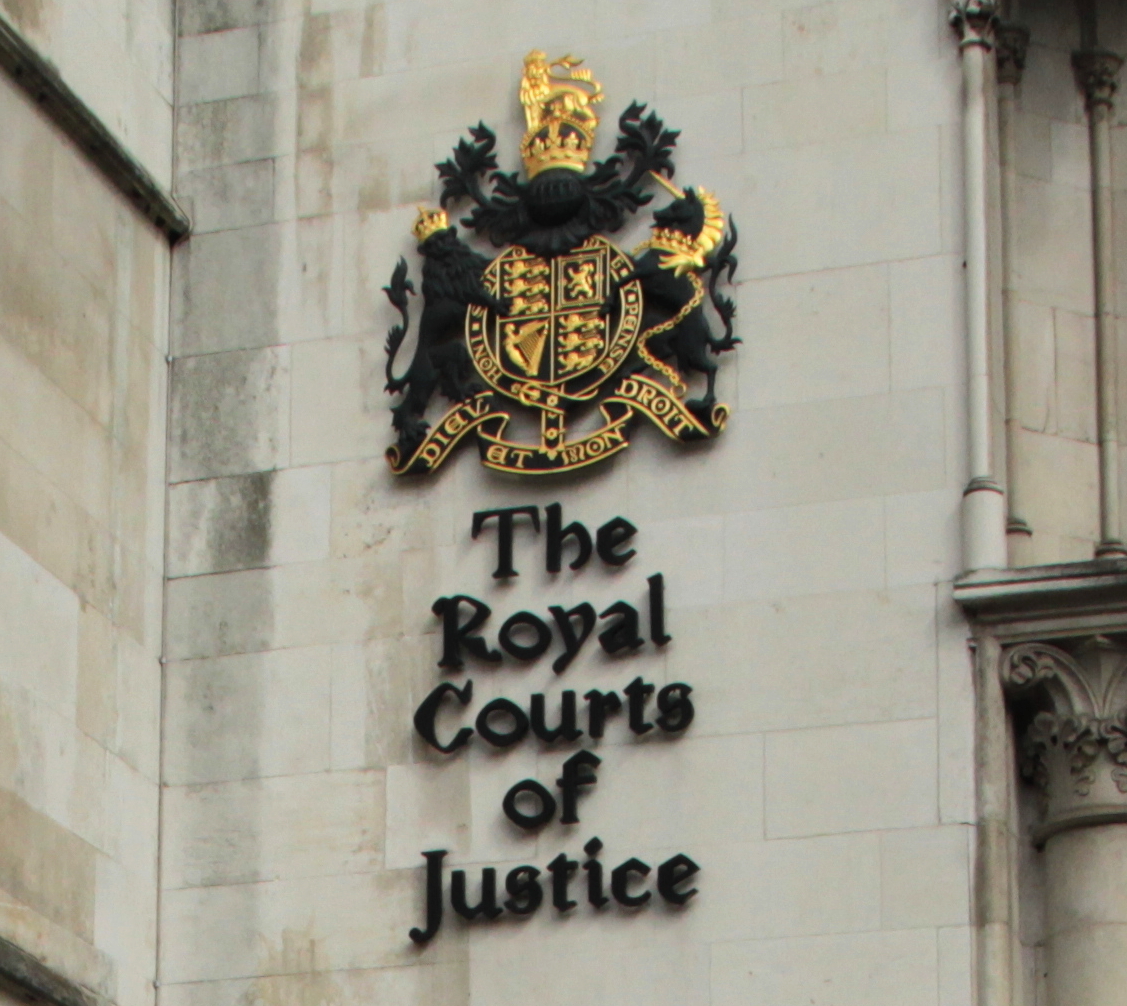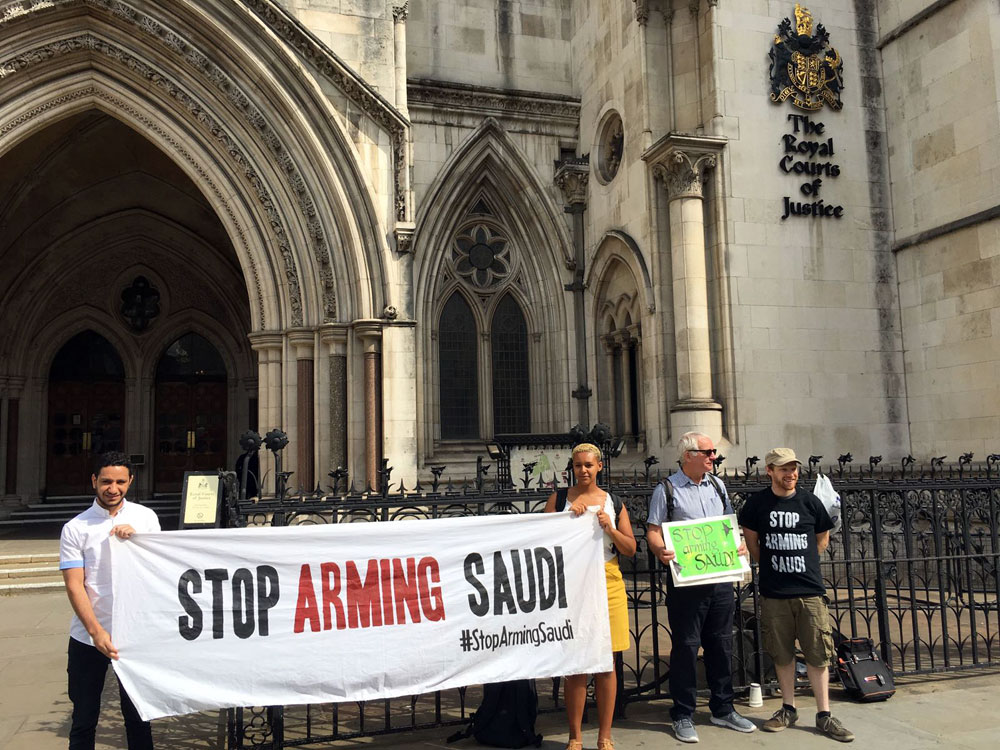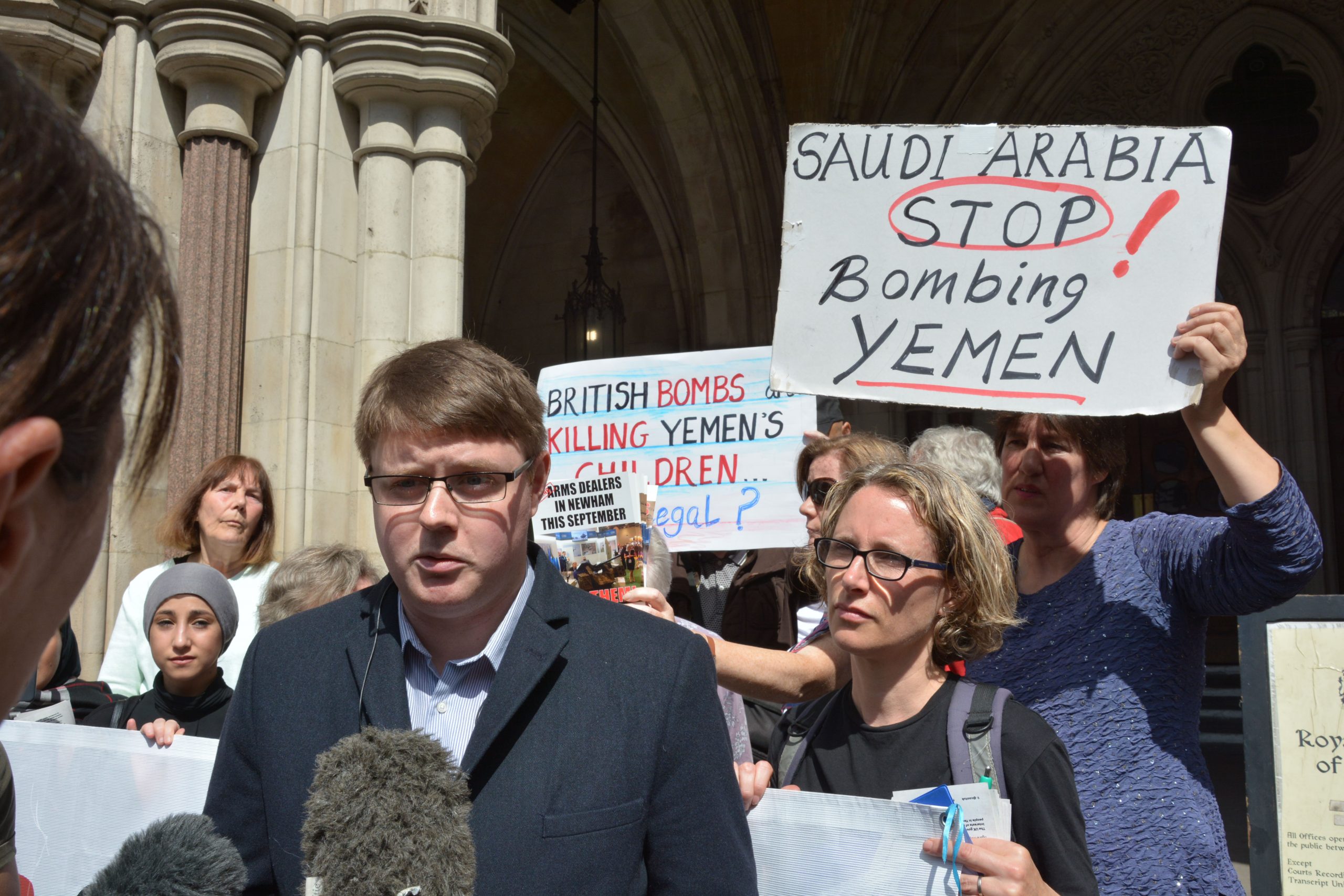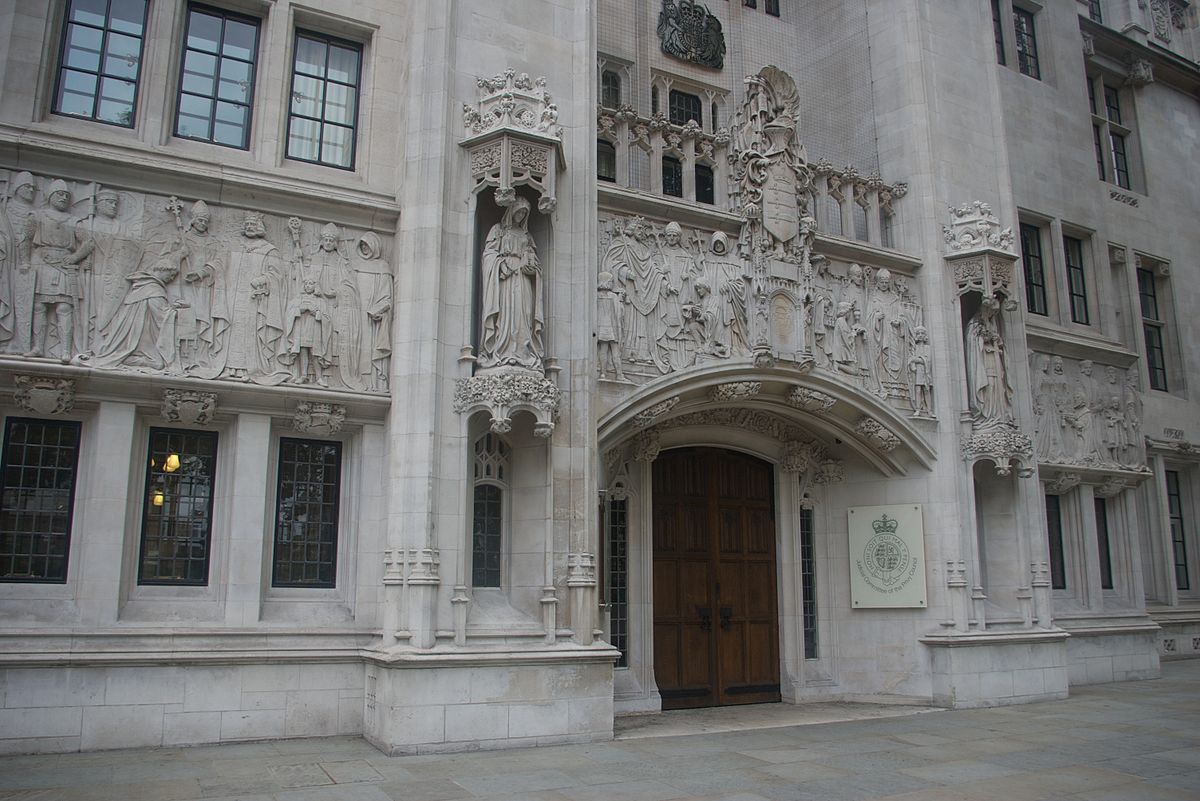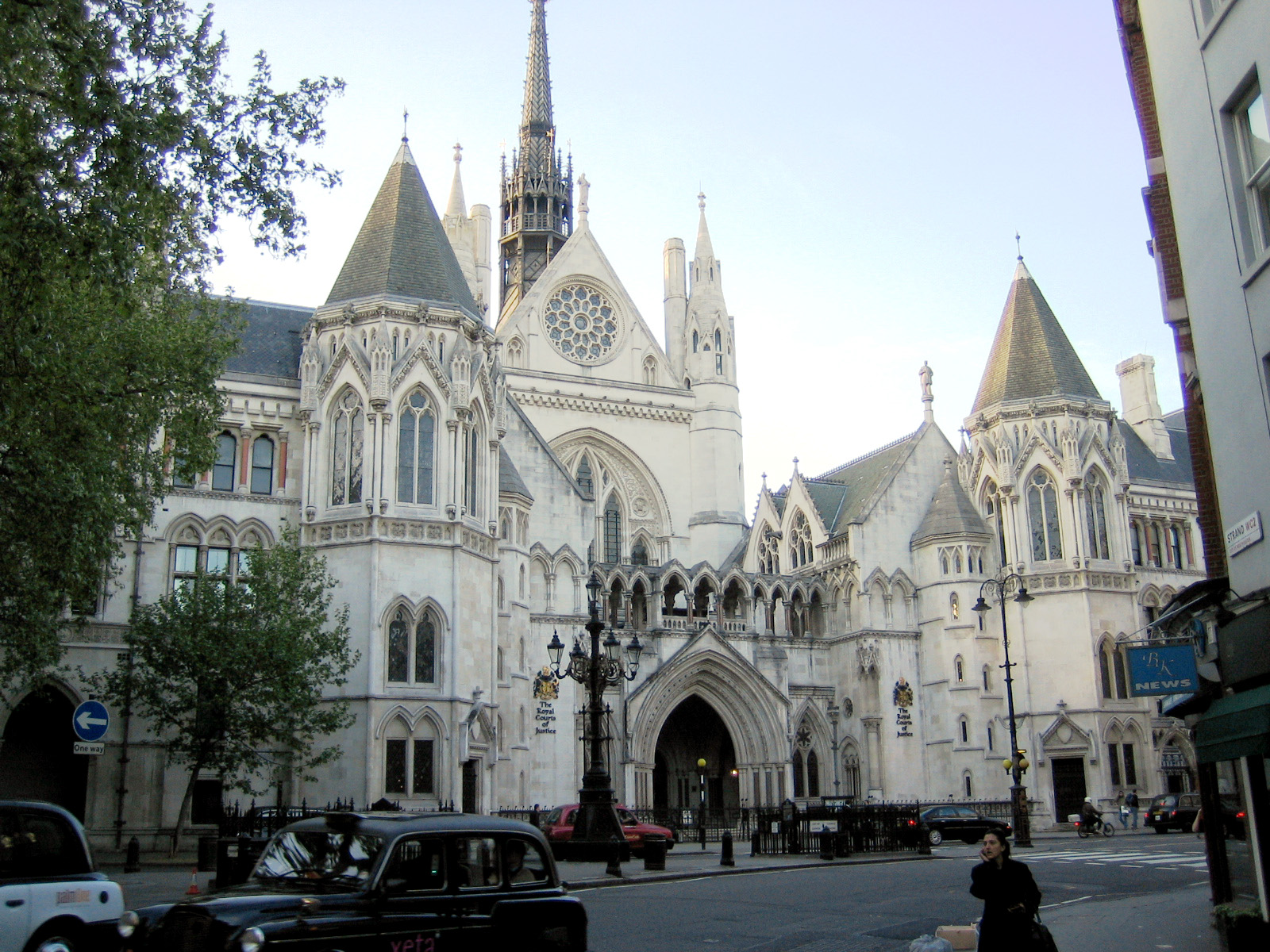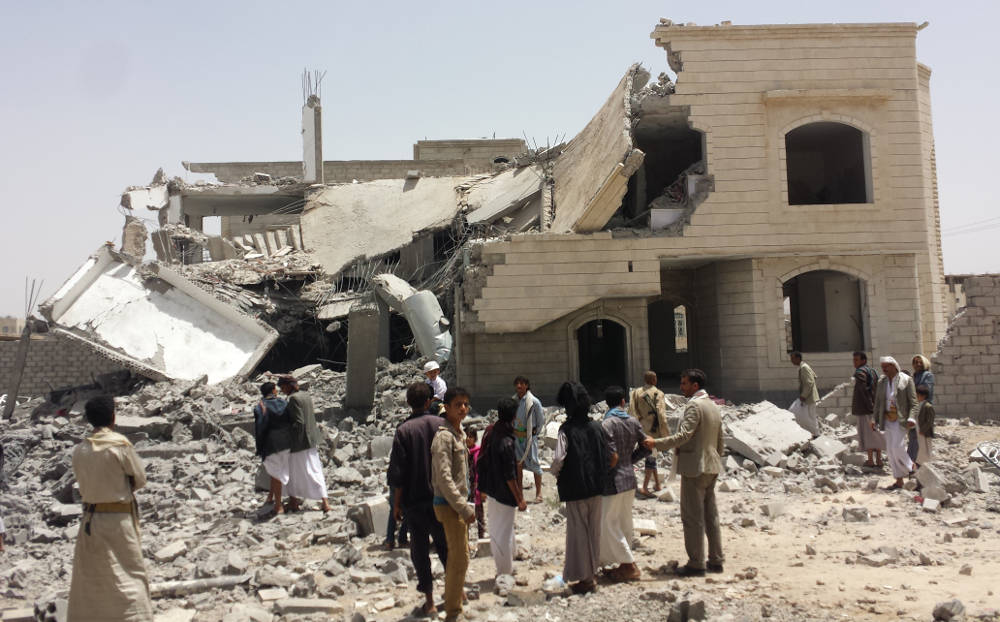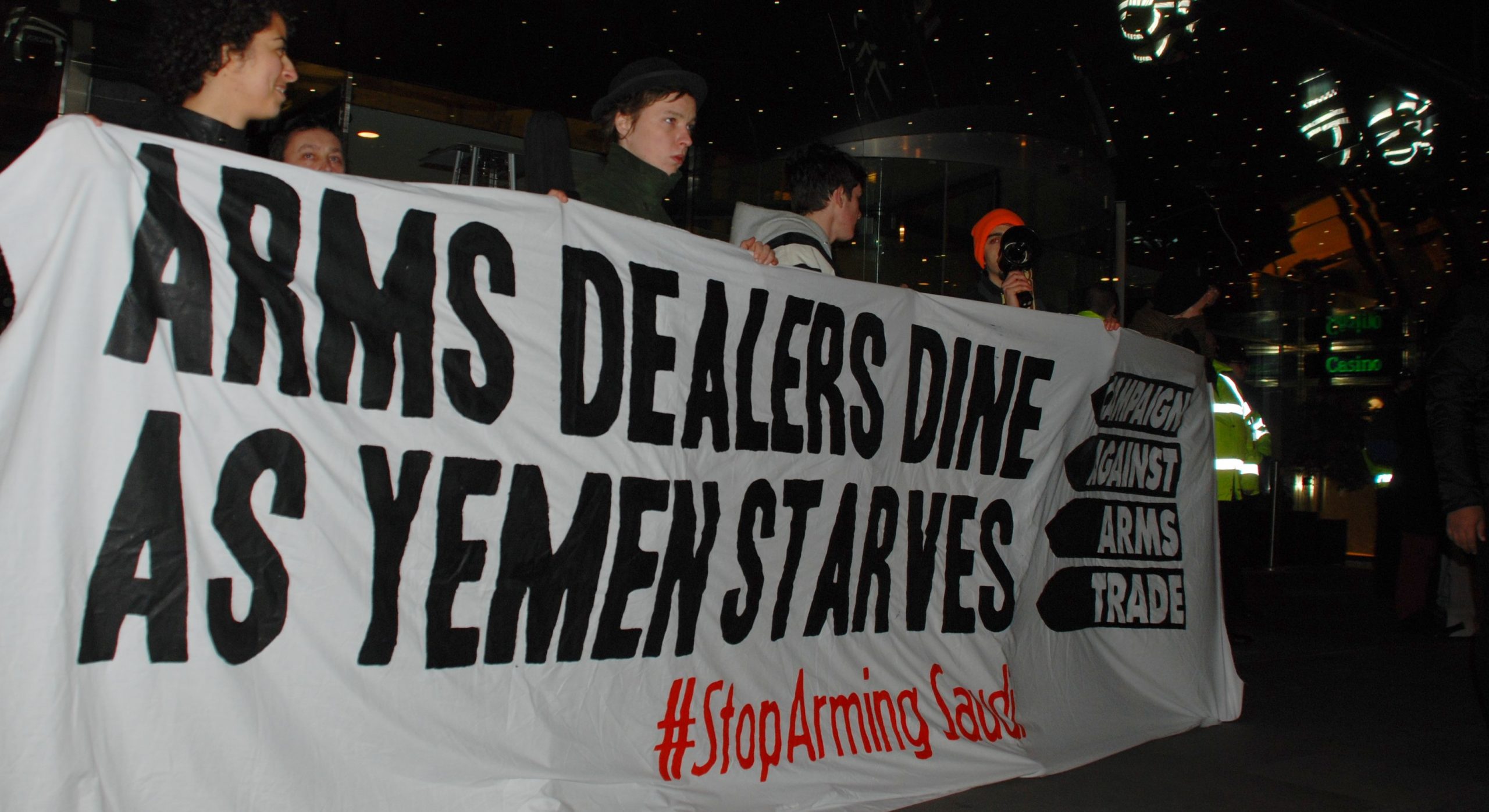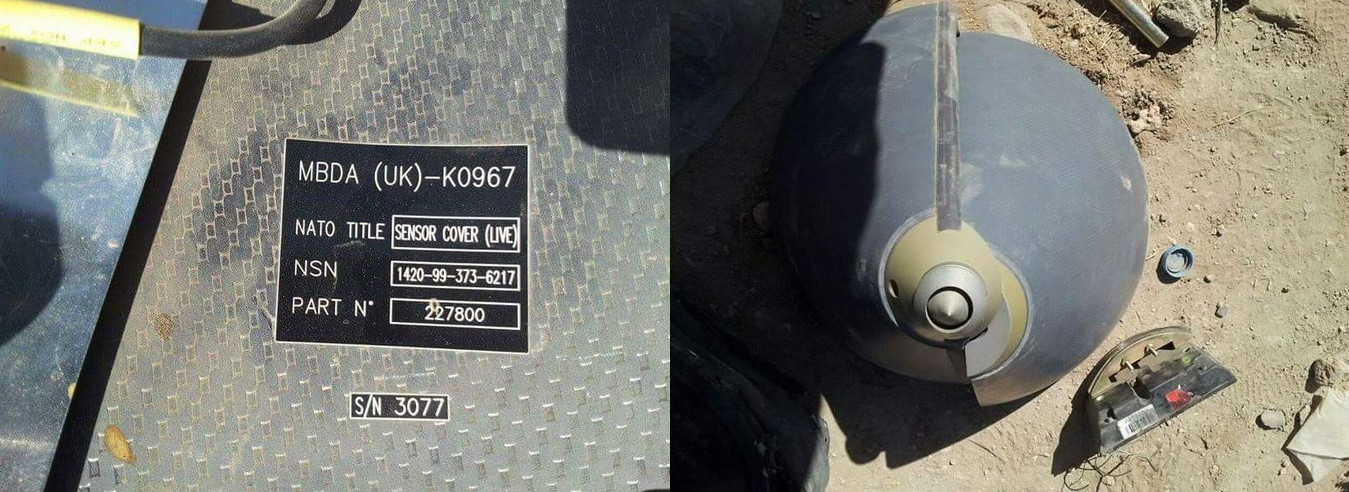Saudi Arabia – legal challenge
In March 2015, a Saudi-led coalition commenced a military campaign in Yemen, targeting Houthis and allied rebel groups backing the former president of Yemen, the late Ali Abdullah Saleh. This military campaign has involved substantial numbers of air strikes against a wide variety of targets. There have also been numerous reports of breaches of International Humanitarian Law (IHL).
CAAT is challenging the UK government’s decision to continue to license the export of military equipment to Saudi Arabia.
The challenge
The legal action is a Judicial Review, a type of court proceeding in which the judges review the lawfulness of a decision or action made by a public body. In this case the judges are examining the lawfulness of decisions made by the Secretary of State responsible for export controls. When the legal action began, this was the Secretary of State for Business, Innovation and Skills. However, after a change to government departments and their responsibilities in July 2016, it is now the Secretary of State for International Trade.
Export licence applications are considered against the Consolidated EU and National Arms Export Licensing Criteria. While the decision is ultimately made by the International Trade Secretary, both the Foreign and Defence Secretaries provide advice.
CAAT’s case focuses on Criterion 2c, which says that licences should not be granted if there is a clear risk that the equipment to be exported might be used in a serious violation of IHL.
High Court hearing
The High Court hearing took place in open session from 7 February to lunchtime 8 February 2017. A hearing closed to CAAT, the press and the public, was held during the afternoon of 8 February and all day on 10 February. CAAT’s interests were represented in the closed sessions by Special Advocates. The Judges were Lord Justice Burnett and Mr Justice Haddon-Cave.
Appeal
Judgment was handed down on 10 July 2017. The High Court rejected CAAT’s claim and CAAT pursued an appeal. There was a hearing on 12 April 2018 when Court of Appeal judges Lord Justice Irwin and Lord Justice Flaux heard arguments for and against granting CAAT permission to have a full appeal hearing. On 4 May 2018 permission was granted to appeal both the open and closed judgments.
The Appeal hearing took place between Tuesday 9 and Thursday 11 April 2019 before the Master of the Rolls, Lord Justice Irwin and Lord Justice Singh.
Appeal Court judgment
Judgment, in CAAT’s favour, was handed down on 20 June 2019. The Government was told to retake on a lawful basis its export licensing decisions on extant licences and not to issue any new ones, where the equipment might be used by Saudi Arabia in Yemen. On 27 June 2019 the Government asked the Court of Appeal for permission to appeal to the Supreme Court and for a stay. Permission to appeal was granted on 9 July 2019.
On 7 July 2020 the Government announced it had completed the review ordered by the Court of Appeal, had determined that any violations of international law were “isolated incidents” and that it would resume granting new licences for arms sales to the Saudi-led coalition for use in Yemen. As a result, the government dropped its planned appeal to the Supreme Court over the Court of Appeal judgement, while CAAT initiated a second Judicial Review claim on 27 October 2020.
The second Judicial Review
CAAT filed for a second judicial review in October 2020. CAAT had four grounds for appeal:
- That the Secretary of State (for International Trade) had no reasonable basis for concluding that there were only a small number of violations of International Humanitarian Law (IHL) by Saudi Arabia;
- That the SoS had no reasonable basis for concluding that there was no pattern to such violations – that they were “isolated incidents”;
- That, even if the conclusions of the SoS in 1 and 2 were accepted, there could still be a clear risk of further violations of IHL.
- That the SoS had incorrectly interpreted the nature of a “serious violation” of IHL
Oxfam and Mwatana were given permission to act as intervenors on CAAT’s side, providing important evidence of major violations, of patterns of violations, and of the inadequacy of Saudi Arabia’s investigations into such violations.
On 20 April 2021 CAAT was granted permission for its legal challenge to proceed to the High Court. However, the case was repeatedly delayed from coming to court. The hearing was finally held from 31 January – 2nd February 2023, in the Divisional Court (one judge from the Court of Appeal, and one from the High Court), by Lord Justice Popplewell and Mr. Justice Henshaw.
As before, much of the government’s evidence was kept secret, and could only be examined in a Closed hearing, where CAAT was represented by two Special Advocates with security clearance, as CAAT and its own lawyers could not be present. In the Open hearing, CAAT was represented as before by Leigh Day solicitors, and by barristers Ben Jaffey KC and Conor McCarthy. CAAT’s special advocates were Angus McCullough KC and Rachel Toney.
The Open and Closed Judgments were handed down by the Court on 6 June 2023. Unfortunately, the judges rejected CAAT’s application on all grounds. An analysis of the (Open) judgment by CAAT’s Advocacy Manager Katie Fallon can be found here.
Further updates will be provided in due course.

